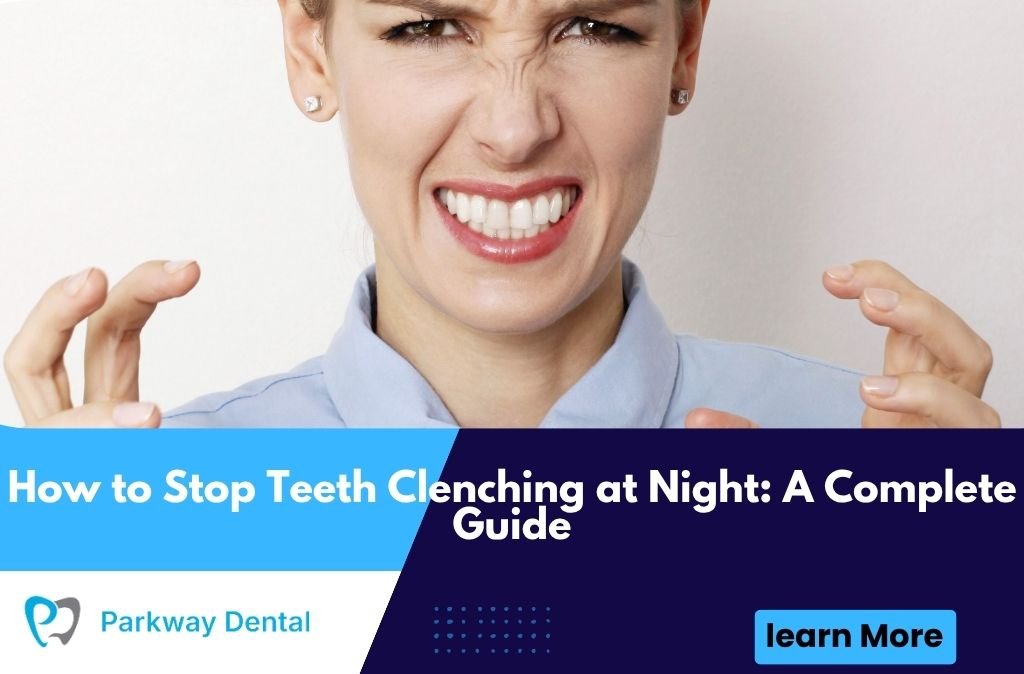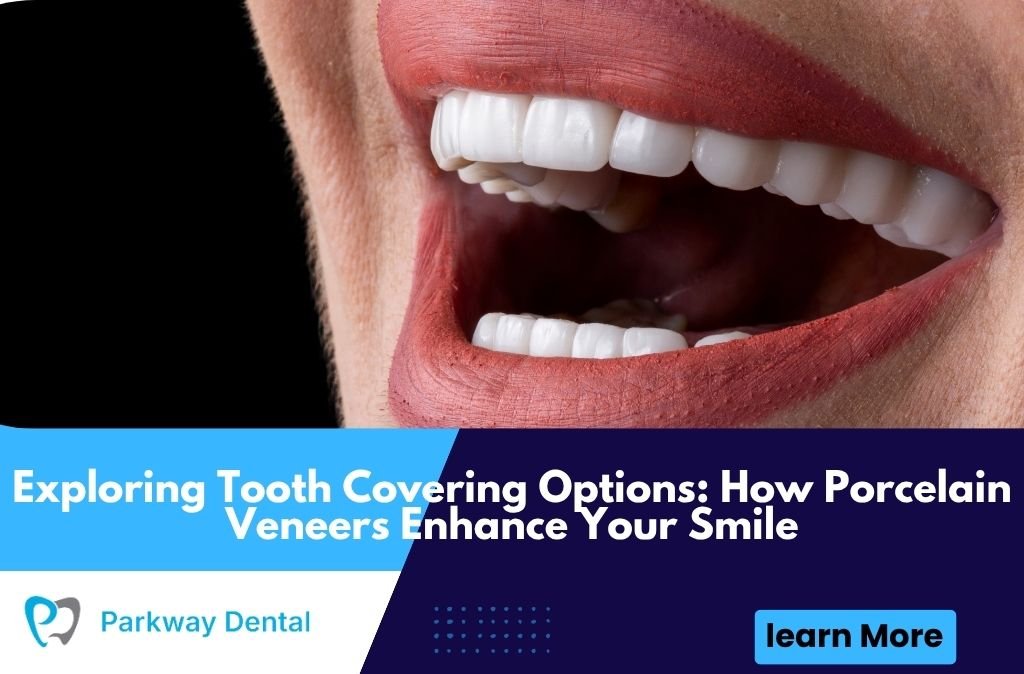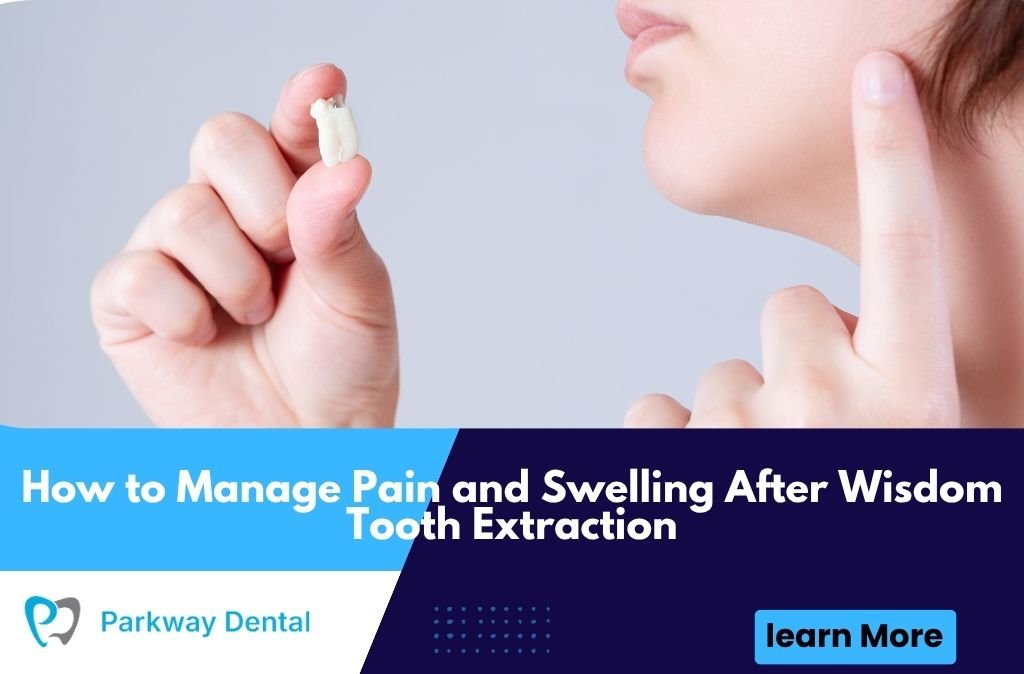Have you ever woken up with a sore jaw, aching teeth, or a dull headache? If yes, you might be clenching your teeth while you sleep. Nighttime teeth clenching, also known as sleep bruxism, is more common than you might think—and most people don’t even realize they’re doing it until the symptoms start affecting their daily life.
The good news? You can manage and reduce teeth clenching with the right knowledge and support. This guide walks you through how to stop clenching your teeth at night, why it happens in the first place, and what you can do about it. If you live in or around West Roxbury, this is especially helpful as we highlight some local solutions too.
What Is Teeth Clenching at Night?
Teeth clenching is when you tightly press your upper and lower teeth together. When this happens during sleep, it’s often linked to bruxism, which also includes grinding. Both habits can cause real damage to your teeth and jaw over time.
You might not even know you’re doing it—until the side effects show up.
Why Do People Clench Their Teeth While Sleeping?
Understanding the root cause of nighttime teeth clenching is the first step toward finding relief.
Stress and Anxiety
This is the number one cause. If you’re under stress—whether from work, relationships, or personal worries—your body may take that tension out on your jaw while you sleep.
Sleep Disorders
People with sleep apnea, snoring, or other disruptions may also experience bruxism. Clenching and grinding are often linked to poor-quality or interrupted sleep.
Misaligned Bite or Dental Issues
Sometimes the problem is physical. If your teeth don’t align correctly or you’ve had dental work that changed your bite, it can trigger clenching.
Lifestyle Factors
Caffeine, alcohol, tobacco, and recreational drugs can all increase the likelihood of clenching during sleep.
Signs You’re Clenching Your Teeth at Night
Not sure if you’re clenching your teeth while sleeping? These symptoms may point to it:
- Morning headaches
- Sore or tight jaw muscles
- Worn down or flattened teeth
- Chipped or cracked teeth
- Tooth sensitivity
- Earaches without infection
- Disrupted sleep
- Clicking jaw or TMJ pain
If these sound familiar, it’s worth taking action now—before more damage is done.
How to Stop Teeth Clenching at Night: Real Solutions
Stopping teeth clenching isn’t about one magic fix. It’s about finding the right combination of treatments and lifestyle changes that work for you.
Let’s walk through your options.
Use a Night Guard
A custom night guard (also called an occlusal splint) is one of the most effective tools for preventing damage caused by clenching and grinding.
How It Works:
- Worn over your upper or lower teeth
- Creates a barrier between teeth
- Absorbs the pressure from clenching
- Reduces jaw tension
Custom night guards from your dentist fit better and last longer than store-bought versions. If you’re in West Roxbury, local dentists can create one specifically for your bite.
Practice Stress Management
Since stress and anxiety are major triggers, learning to manage your mental health can reduce or even stop nighttime clenching.
Tips to Lower Stress:
- Try meditation or mindfulness apps before bed
- Practice deep breathing exercises
- Journaling to release worries
- Avoid screens and negative content at night
- Take up yoga or light stretching
Making small changes in how you unwind before bed can lead to better sleep and less jaw tension.
Improve Your Sleep Hygiene
Poor sleep habits can trigger or worsen clenching. Creating a consistent, calm bedtime routine can make a huge difference.
Better Sleep Tips:
- Go to bed and wake up at the same time daily
- Avoid caffeine after 2 p.m.
- Limit alcohol before bed
- Keep your bedroom dark, quiet, and cool
- Use a white noise machine if needed
These steps help reduce unconscious tension during sleep, which may stop your clenching habit over time.
Check Your Bite and Dental Alignment
If your bite is misaligned, your jaw may be working harder to compensate, especially at night.
What to Do:
- Visit your dentist to assess your bite
- Consider orthodontics if needed
- Ask about adjustments or reshaping if recent dental work feels “off”
Proper alignment reduces the strain on your jaw muscles and helps stop the urge to clench.
Limit Stimulants Before Bed
Drinks and foods that stimulate your nervous system may increase nighttime teeth activity.
What to Avoid:
- Coffee
- Energy drinks
- Chocolate
- Tobacco
- Alcohol
These can increase muscle tension and disrupt your sleep cycle, both of which fuel teeth clenching.
Do Jaw Exercises and Relaxation Techniques
Simple exercises help train your jaw to stay relaxed and reduce tension buildup.
Try These:
- Gently open and close your mouth 10 times
- Massage the jaw and temples before bed
- Place a warm towel on your jaw for 5 minutes
- Practice saying “Nnnn” to keep your tongue at the roof of your mouth—it relaxes the jaw
These techniques are easy, free, and effective if practiced daily.
Cognitive Behavioral Therapy (CBT)
If your clenching is linked to deep-seated anxiety or emotional tension, CBT can help identify thought patterns that contribute to the habit.
Working with a therapist helps you develop long-term stress management strategies, which naturally reduce clenching.
Avoid Chewing Non-Food Items
Chewing on pens, nails, ice, or even gum can train your jaw muscles to stay tense. Give them a break.
Train your brain that your mouth and jaw are only for eating and speaking—not for holding tension or chewing out of boredom.
What Happens If You Don’t Treat Teeth Clenching?
Ignoring nighttime clenching can lead to serious dental problems and pain over time:
- Worn or cracked teeth
- Receding gums
- Tooth loss
- Chronic jaw pain or TMJ disorder
- Neck and shoulder tension
- Disturbed sleep and fatigue
The earlier you act, the easier it is to reverse the damage and protect your long-term oral health.
Your Dentist Can Help You Stop Clenching
A professional evaluation is the best way to figure out what’s really going on. Your dentist can:
- Examine your teeth for wear patterns
- Recommend a custom night guard
- Check your bite alignment
- Suggest behavior modifications
- Refer you to specialists if needed
If you’re in West Roxbury, you have access to excellent local care and support. Whether you need a consultation, a mouthguard, or guidance on managing stress and sleep, there are options close to home.
Conclusion
Teeth clenching at night isn’t something you have to live with. It may be rooted in stress, dental alignment, or sleep patterns—but there are proven ways to stop it. From using a night guard to making small lifestyle changes, you have the power to protect your smile and your well-being.
If you’re waking up with jaw pain or worry your teeth are being worn down while you sleep, it’s time to get help. Don’t wait until the damage becomes serious.
Speak with a trusted Dentist in West Roxbury, MA, to assess your clenching habits and create a personalized plan to stop it—for good.
FAQs
What causes teeth clenching at night?
Stress, anxiety, misaligned teeth, sleep disorders, and stimulant intake (like caffeine) are common causes of nighttime clenching.
Can a night guard really stop clenching?
Yes, a custom night guard won’t stop the habit but will protect your teeth from damage and reduce jaw tension.
Is teeth clenching the same as grinding?
They’re related but different. Clenching involves holding teeth tightly together, while grinding involves moving them back and forth.
Will clenching stop on its own?
Sometimes, especially if it’s stress-related and short-term. But if it continues, it can lead to serious dental damage and should be treated.
Are store-bought night guards effective?
They offer some protection, but custom night guards from your dentist are more comfortable, last longer, and protect better.






